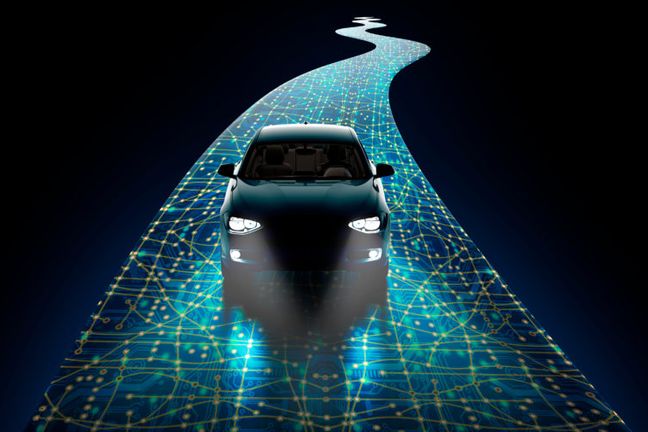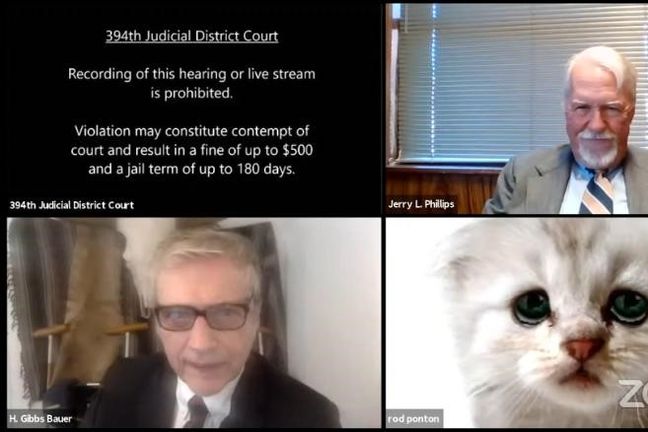Introduction
With the advent and rise of autonomous vehicles in the United States, comes the enactment of laws to regulate the manufacturing and operation of said vehicles. This article explores the state of autonomous vehicle legislation at the federal level as well as California’s efforts at regulating autonomous vehicles. Last, this article addresses a current push for certain federal legislation.
Federal Autonomous Vehicle Legislation
There is currently no federal legislation regulating autonomous vehicles. The federal government has made efforts pass various legislation regulating autonomous vehicles but such laws have stalled as of 2018.
The House of Representatives previously in 2017 passed by a two-thirds majority, the Self Drive Act. The Act, in part, lays out a basic federal framework for autonomous vehicle regulation[1]. The Act works out a way for the federal government’s rules to trump state laws and rules[2]. The Act gave the National Highway Traffic Safety Administration the power to regulate vehicle design, construction, and performance[3]. The National Highway Traffic Safety Administration does this with “normal” cars[4]. Under the Act, states still would have had authority over vehicle registration and licensing[5]. However, if the Act had been enacted, it would have made it more difficult for states to make demands about what goes on inside the car[6].
The Senate’s AV Start Act essentially set out to establish a framework for a federal role in ensuring the safety of autonomous vehicles[7]. The Act would have 1) preempted states from adopting, maintaining, or enforcing any law, rule, or standard regulating an autonomous vehicle as far as certain safety evaluation report subject areas; 2) set forth conditions under which autonomous vehicles would have been introduced into interstate commerce for testing, evaluation, or demonstration; and 3) applied certain safety exemptions to autonomous vehicles[8]. The Senate’s AV Start Act however, failed to pass after Democrats in the Senate raised objections the Act did not do enough to address safety concerns[9].
State Autonomous Vehicle Legislation
In the absence of federal legislation regulating autonomous vehicles, twenty-nine states and the District of Columbia have passed legislation on the issue. For example, in California Vehicle Code section 38750 requires the DMV to adopt regulations governing both the testing and public use of autonomous vehicles on California roadways[10]. Under current California legislation, the DMV has three autonomous vehicle permit options: testing with a driver, driverless testing and deployment[11]. Other states which have enacted autonomous vehicle legislation include Colorado, Florida, and Washington.
Current Push for Federal Legislation Regulating Autonomous Vehicles
More recently, those in the legal profession are starting to push for certain federal legislation regulating autonomous vehicles. Specifically, Daniel Hinkle, of the American Association for Justice (a plaintiffs’ lawyers advocacy and lobbying group) while at a congressional hearing, told lawmakers that federal legislation on automated vehicles must preserve state law remedies. Mr. Hinkle voiced his opinion that any legislation on autonomous vehicles must avoid barring claims under state law. This way, people injured by automated driving can hold the carmaker accountable. Mr. Hinkle raised to lawmakers that those individuals injured must be allowed to face a manufacturer in court and not be subject to forced arbitration which he called a “one-sided, secretive and rigged system” that shields a company from public accountability.
Mr. Hinkle further told a subcommittee of the House Energy and Commerce Committee that car manufacturers have almost never embraced safety technologies of their own accord without some outside force which has commonly been public accountability through the courts. “For over 50 years, lawsuits against vehicle manufacturers for design choices and failure to install safety technologies have spurred advancements in safety technology,” Mr. Hinkle said. “From seatbelts to airbags to automated systems like electronic stability control, it is often the lawsuits that have led the way in showing when and how corporations make certain choices which prioritize profit over the health and safety of American families.”
Mr. Hinkle also pointed to litigation over General Motors’ defective ignition switch, which he said yielded discovery showing that GM knew about the problem since 2001 and a recall of 2.5 million cars. Manufacturers of automated cars should also be held accountable for following the rules of the road, Mr. Hinkle said, since human drivers can be held responsible if they violate a rule and hurt someone.
During the hearing where Mr. Hinkle addressed lawmakers, a number of lawmakers raised the prospect of China overtaking the U.S. on automated driving technology. “There’s a global race to [automated vehicles],” Rep. Martha Rodgers, R-Wa. said. “Do we want China to win that race?” Alliance for Automotive Innovation president John Bozzella pushed back on those fears, saying he believes the U.S. is in the lead, but that could stall if Congress doesn’t move forward.
Conclusion
It appears inevitable that Congress will begin enacting laws regulating autonomous vehicles. It is important for all those involved with autonomous vehicles to keep abreast of all new legislation, including federal legislation, as it will have a direct impact on the future autonomous vehicles.
[1] Congress Unites (Gasp) to Spread Self-Driving Cars Across America. https://www.wired.com/story/congress-self-driving-car-law-bill/.
[2] Id.
[3] Id.
[4] Id.
[5] Id.
[6] Id.
[7] Summary: S.1885 -115th Congress (2017-2018). https://www.congress.gov/bill/115th-congress/senate-bill/1885
[8] Id.
[9] Congress Takes Another Stab at Passing Self-Driving Car Legislation. https://www.theverge.com/2019/7/28/8931726/congress-self-driving-car-bill-redo-2019
[10] https://www.dmv.ca.gov/portal/dmv/detail/vr/autonomous/bkgd
[11] Id.

 Author: Rachel Donnelly
Author: Rachel Donnelly
 Cannabis Workers Allege Quota to Trim 4 Pounds a Day Violates the California Labor Code
Cannabis Workers Allege Quota to Trim 4 Pounds a Day Violates the California Labor Code
 The Ninth Circuit Reminds Us: Every Word Matters
The Ninth Circuit Reminds Us: Every Word Matters
 NO WAY, PRO SE! The Consequences of Abusing the Judicial System as a Pro Se Litigant in Colorado
NO WAY, PRO SE! The Consequences of Abusing the Judicial System as a Pro Se Litigant in Colorado
 Victim of Financial Mismanagement or Unlawful Retaliation? New Jersey City University Program Founder Claims School Retaliated After Reporting Alleged Sexual Harassment
Victim of Financial Mismanagement or Unlawful Retaliation? New Jersey City University Program Founder Claims School Retaliated After Reporting Alleged Sexual Harassment
 “Real Housewives” Gets a Reality Check
“Real Housewives” Gets a Reality Check
 Missing a Chapter: Insufficiency of Expert Deposition Testimony in Medical Malpractice Litigation
Missing a Chapter: Insufficiency of Expert Deposition Testimony in Medical Malpractice Litigation
 Crash Course: Why Summary Judgment Misses the Mark in Illinois Multi-Cause Limousine Crash Collision
Crash Course: Why Summary Judgment Misses the Mark in Illinois Multi-Cause Limousine Crash Collision
 Bitter Truths: Lead, Cadmium, and Defective Pleadings in California Chocolate Class Action
Bitter Truths: Lead, Cadmium, and Defective Pleadings in California Chocolate Class Action
 The Law of Unintended Consequences: Including Insurance Brokers in Litigation Strategy Communication May Waive the Attorney-Client Privilege
The Law of Unintended Consequences: Including Insurance Brokers in Litigation Strategy Communication May Waive the Attorney-Client Privilege
 You Poetic, Noble Land Mermaid: A Celebration of “Galentine’s Day”
You Poetic, Noble Land Mermaid: A Celebration of “Galentine’s Day”
 A Tell-All Article on Written Discovery Objections
A Tell-All Article on Written Discovery Objections
 The Wave of Recent COVID-19 Litigation and Trends to Watch For
The Wave of Recent COVID-19 Litigation and Trends to Watch For
 How to Avoid Appearing as a Cat and Other Helpful Virtual Deposition Tips
How to Avoid Appearing as a Cat and Other Helpful Virtual Deposition Tips
 California Court Refuses to Reduce a $9.25 Million Award
California Court Refuses to Reduce a $9.25 Million Award
 Discovery of Litigation Funding Documents
Discovery of Litigation Funding Documents
 Recent Discovery in Injuries Stemming from “Vaping”
Recent Discovery in Injuries Stemming from “Vaping”